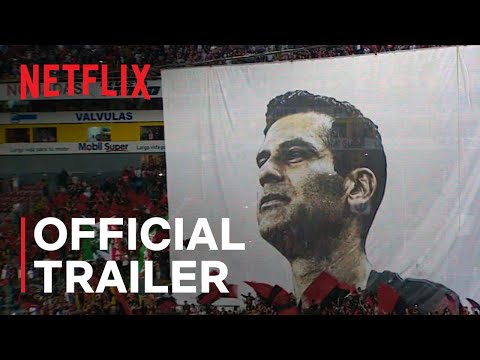Rafael Márquez Álvarez is arguably the most accomplished player in the history of Mexican soccer.
Lovingly referred to as “El Káiser de Michoacán,” “El Duque de Catalunya” or simply “Rafa,” Márquez has had a storied career that lasted for more than two decades. He won domestic and international championships in four countries and captained the Mexican national team in five consecutive World Cup tournaments.
He’s also the subject of “Rafa Márquez: El Capitán,” a Netflix documentary that premiered earlier this month.
Directed by Carlos Armella and written by journalist León Krauze, the production joins “Maradona In Mexico,” “Pelé” and “Beckham” as part of the streamer’s growing library of soccer-centric documentaries that center on an athlete and their career.
“It’s interesting because, in my private life, I’ve always been very hermetic. I don’t think I’ve ever had the temptation to make a documentary,” Márquez said, adding that he had been approached by several production companies about working on such a project. Unsure of how, or even if, to move forward with the idea, he reached out to his close friend Pablo Cruz, co-founder of El Estudio.
“[Cruz] eventually entertains the idea of ‘Hey, why don’t we make it ourselves? Because, ultimately, there’s already a friendship between us and plenty of trust,’ ” said Márquez. “From that perspective, I said, ‘Well, there’s a lot of trust, so I think I can talk about things with you more than I would with someone else.’ ”
The film follows Márquez’s trajectory on the pitch, beginning with the young defender’s short but crucial stint with Mexican club Atlas FC before moving on to his glory days in Europe. With AS Monaco, he became the first Mexican footballer to play and win a title in France’s Ligue 1. At FC Barcelona, Márquez made history yet again, becoming the first player of Mexican descent to win the UEFA Champions League.
For every bit of glory, however, there’s also pain. The documentary covers Mexico’s upset loss to the United States at the 2002 FIFA World Cup, a match that birthed the now infamous “dos a cero” taunt. For Márquez, the U.S.-Mexico rivalry was always personal, which made the defeat sting more.
“It’s an interesting point that comes up in the documentary, that a lot of people don’t know about, this feeling or this frustration that I experienced due to a family issue that I don’t want to spoil here,” he said. “It’s better that people see it in the documentary, but it’s something that added a personal motive to the rivalry we’ve always had against the U.S.”
Off the pitch, “El Capitán” delves into challenging moments in Márquez’s personal life, including sanctions imposed on him by the United States Treasury Department in 2017 for alleged money laundering on behalf of a cartel leader. He would eventually be cleared of any wrongdoing by Mexico’s attorney general and the U.S. Treasury.
The film extensively covers Márquez’s relationship with his father, Rafael Márquez Esqueda, whose own professional soccer career propelled his son to follow in his footsteps. The senior Márquez died months after the 2002 World Cup.
“My father was a very important person, a pillar of who I am. I think that the most important thing that I learned from my father is discipline,” said Márquez. “It’s something that I also try to pass on to my children and, I think, something that I’ll never forget from him is if I’m going to do something, whatever it is, that it be done in the best way, to give it all my effort in order to give my best so that everything turns out well.”
That mindset, he says, is how he approaches his job as head coach of FC Barcelona Atlétic, the reserve team of young players for the Catalonian club.
“The truth is that now that I’m a coach and I’m responsible for a group of young players, I do try to motivate them in one way or another. It isn’t easy having youngsters who are somewhat famous,” he said. It’s an experience Márquez is very familiar with — he was 20 when he left Mexico for Monaco.
Though Márquez’s coaching career has just begun — in 2020, he took over the Spanish club Real Sociedad Deportiva Alcalá’s youth team before taking his current job in 2022 — Barcelona greats Carles Puyol and Samuel Eto’o, who are featured in the documentary, believe their former teammate has what it takes to be in charge of the Mexico national team. It’s a dream position, Márquez said, but one that he’ll only land with a lot of effort.
“For that job, I have to keep working, I have to be well prepared, I have to attempt to create my own guarantees to try to earn that job. And that’s my idea: to continue preparing myself, gaining experience to achieve that, God willing, and do a great job at it,” he said.
“I believe that my mentality, my values, need to be the same as when I was a professional athlete, with the intention of making history, no matter where I’m at, to try to be the best, wherever I may be and with the values that my father gave me: that if I commit to something, that I do it well.”
Iván Fernández is a freelance journalist based in Los Angeles.

